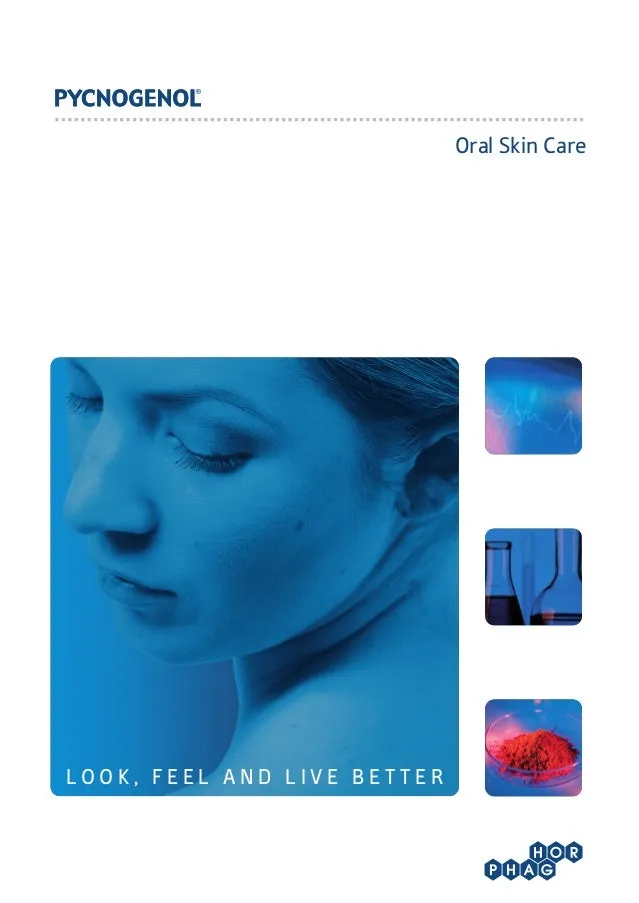What is Pycnogenol
Pycnogenol is a natural plant extract derived from the bark of the French maritime pine tree (Pinus pinaster). It’s a potent antioxidant and has gained significant recognition in the skincare world for its various health benefits, including its potential to promote skin whitening. Its rich composition of procyanidins, bioflavonoids, and organic acids makes it an appealing option for those seeking natural ways to enhance their skin’s appearance. This extract has been extensively researched, and its efficacy in different areas, including skin health, has been proven through various studies, solidifying its reputation as a valuable ingredient in skincare products and supplements.
The Science Behind Pycnogenol and Skin Whitening
The skin whitening properties of Pycnogenol stem from its multifaceted mechanisms of action. It combats hyperpigmentation and promotes a more even skin tone through several processes. Its primary effect lies in its ability to neutralize free radicals, which can cause oxidative stress and accelerate skin aging. Pycnogenol’s antioxidant properties play a crucial role in protecting the skin from damage caused by environmental factors, such as UV radiation and pollution. Furthermore, Pycnogenol inhibits tyrosinase, an enzyme involved in melanin production, the pigment responsible for skin color. By doing so, Pycnogenol can reduce melanin synthesis and lighten dark spots and uneven skin tones.
Antioxidant Power
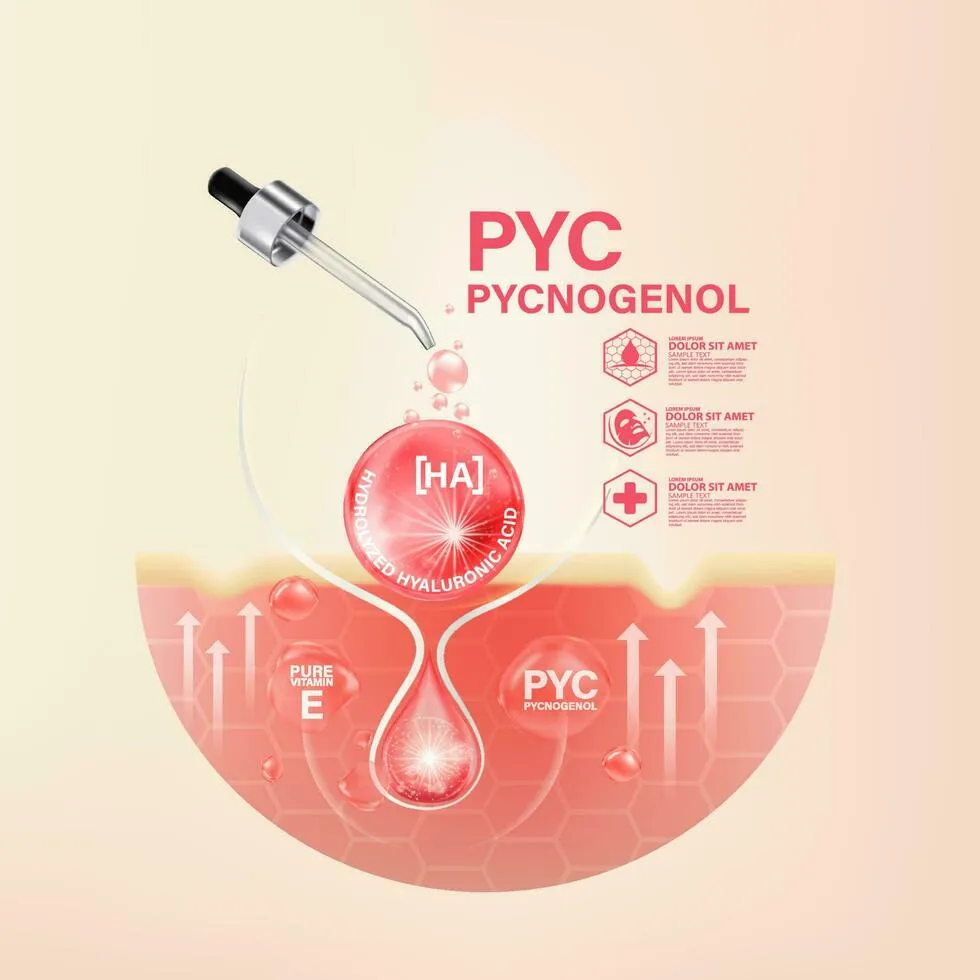
Pycnogenol is one of the most potent antioxidants available, which is key to its skin-whitening effects. Antioxidants neutralize free radicals, unstable molecules that can damage cells and contribute to skin aging. By scavenging these free radicals, Pycnogenol protects the skin from oxidative stress. This protective action helps prevent premature aging, reduces inflammation, and allows the skin to maintain its natural radiance. This antioxidant capacity not only promotes skin whitening but also contributes to overall skin health and vitality.
UV Protection Boost
Exposure to ultraviolet (UV) radiation is a primary cause of skin damage, including hyperpigmentation and uneven skin tone. Pycnogenol enhances the skin’s protection against UV rays by several mechanisms. It acts as an antioxidant, neutralizing free radicals generated by UV exposure. Moreover, it helps reduce the production of melanin, the pigment that causes tanning and dark spots, triggered by sun exposure. By offering these protective benefits, Pycnogenol can help minimize the effects of sun damage, reduce the appearance of existing pigmentation, and prevent further darkening, thus contributing to skin whitening.
Improved Skin Elasticity
Skin elasticity is essential for maintaining a youthful and healthy appearance. Pycnogenol enhances skin elasticity by promoting collagen and elastin production. Collagen is the primary structural protein of the skin, providing firmness, while elastin allows the skin to stretch and return to its original shape. By increasing these proteins, Pycnogenol helps reduce the appearance of wrinkles and fine lines, resulting in firmer, more supple skin. Enhanced elasticity also contributes to a more even skin tone and overall skin health, which is vital for achieving a brighter complexion.
Reduced Hyperpigmentation

Hyperpigmentation, characterized by dark spots and uneven skin tone, is a common concern addressed by skin whitening treatments. Pycnogenol effectively reduces hyperpigmentation through multiple mechanisms. It inhibits tyrosinase, an enzyme that promotes melanin production. Furthermore, its antioxidant properties combat the free radicals that trigger skin darkening and inflammation. These effects work together to reduce the appearance of dark spots, sunspots, and other forms of hyperpigmentation. By reducing melanin production and protecting the skin from environmental damage, Pycnogenol helps achieve a more even and brighter skin tone.
Enhanced Skin Hydration
Proper skin hydration is crucial for maintaining healthy, glowing skin. Pycnogenol aids in skin hydration by improving the skin’s ability to retain moisture. It strengthens the skin barrier function, preventing water loss, and keeping the skin plump and hydrated. Well-hydrated skin is less prone to dryness, flakiness, and irritation, which can contribute to an uneven skin tone. By boosting hydration levels, Pycnogenol helps create a smoother, more radiant complexion, enhancing the skin whitening effects and promoting overall skin health.
Top 5 Benefits of Pycnogenol for Skin Whitening
Benefit 1: Fades Dark Spots
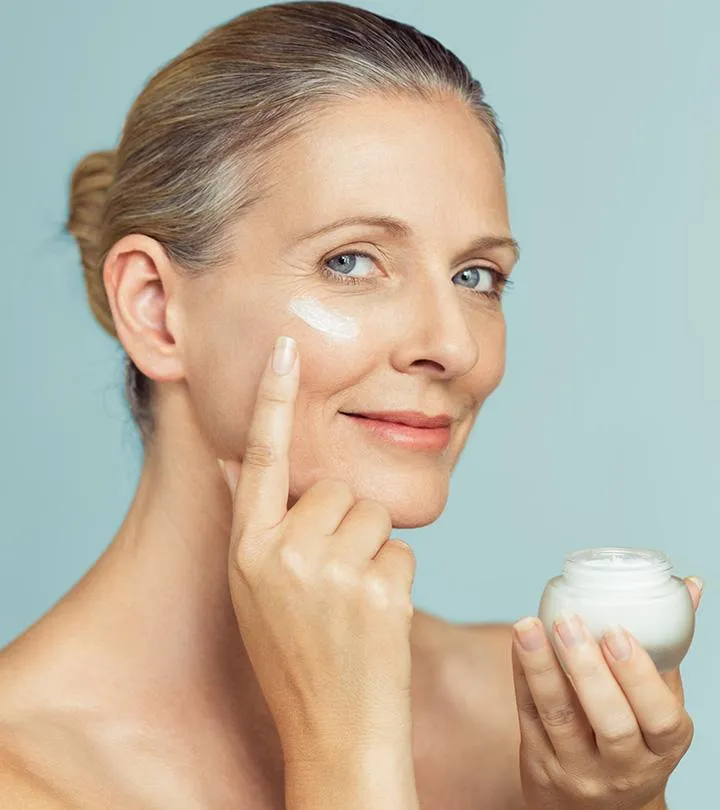
One of the primary benefits of Pycnogenol is its ability to fade dark spots caused by sun damage, aging, or acne. By inhibiting melanin production and providing antioxidant protection, Pycnogenol reduces the appearance of hyperpigmentation, leading to a more even skin tone. Regular use of Pycnogenol can help diminish the visibility of existing dark spots and prevent the formation of new ones, contributing to a clearer complexion. The antioxidant effects also help to repair skin damage.
Benefit 2: Evens Skin Tone
Pycnogenol is highly effective at evening out skin tone, addressing areas of uneven pigmentation that can result from various factors. It targets the underlying causes of discoloration, such as sun exposure and inflammation, to provide a consistent complexion. This helps to diminish the contrast between lighter and darker areas, resulting in a balanced and luminous appearance. Incorporating Pycnogenol into your skincare routine can lead to a more uniform and balanced skin tone, boosting confidence.
Benefit 3: Brightens Complexion
A brighter complexion is often associated with healthy and youthful skin. Pycnogenol’s antioxidant properties and its ability to reduce melanin production contribute to a brighter appearance. It fights dullness caused by environmental stressors and aging, revealing a natural glow. By improving skin health and reducing dark spots, Pycnogenol enhances the skin’s radiance, giving it a healthier and more vibrant look. This contributes to the overall skin whitening effect, making the skin appear more luminous.
Benefit 4: Reduces Inflammation
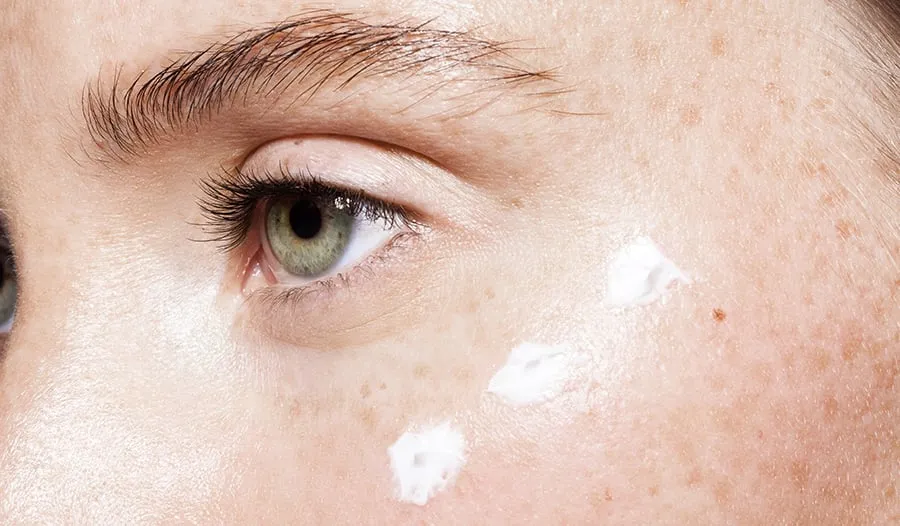
Inflammation is a key factor in many skin issues, including acne, eczema, and hyperpigmentation. Pycnogenol possesses anti-inflammatory properties that can soothe and calm irritated skin. By reducing inflammation, it decreases redness and prevents the formation of dark spots. Moreover, reducing inflammation allows the skin to repair itself and prevents further damage. This promotes a clearer, more balanced complexion, making it a valuable ingredient for anyone aiming to whiten and enhance their skin’s health.
Benefit 5: Promotes Collagen Production
Collagen is essential for maintaining skin elasticity, firmness, and a youthful appearance. Pycnogenol stimulates collagen production, supporting skin health and reducing the appearance of wrinkles and fine lines. As a result, the skin becomes firmer and more resilient. The increased collagen contributes to a smoother, more even skin texture and enhanced elasticity, which are all essential for a brighter and healthier complexion. This ultimately supports the skin whitening process and contributes to an overall improvement in skin quality.
How to Use Pycnogenol for Skin Whitening
Dosage and Forms

Pycnogenol is available in various forms, including topical creams, serums, and oral supplements. The appropriate dosage depends on the product type and individual needs. For topical applications, it’s important to follow the manufacturer’s directions and start with a small amount to assess your skin’s reaction. Oral supplements typically come in capsules or tablets, with dosages ranging from 50 to 100mg per day. Consult with a dermatologist or healthcare provider to determine the best dosage and formulation for your specific skin concerns. Consistency is crucial when using Pycnogenol.
Topical Application
Topical products containing Pycnogenol, such as creams, serums, and lotions, are applied directly to the skin. To use, begin by cleansing and drying your skin. Then, apply a small amount of the product to the affected areas. Gently massage the product into your skin until it’s fully absorbed. It’s best to use topical Pycnogenol once or twice daily, depending on the product instructions. Always incorporate a sunscreen with a high SPF during the daytime to maximize the effects of the product and protect your skin from further damage. Results can typically be seen within a few weeks.
Oral Supplementation
Oral Pycnogenol supplements provide internal support for skin health. The recommended dosage usually ranges from 50 to 100mg daily. For optimal results, it’s often taken with a meal. Be consistent with your dosage for several weeks to see noticeable improvements in skin tone and overall health. Oral supplements work from the inside out, offering benefits throughout the body. Combining oral supplementation with topical applications can enhance the overall benefits, leading to more rapid and noticeable improvements in skin whitening and overall skin appearance. Always consult a healthcare provider before starting any new supplement regimen.
Potential Side Effects and Precautions
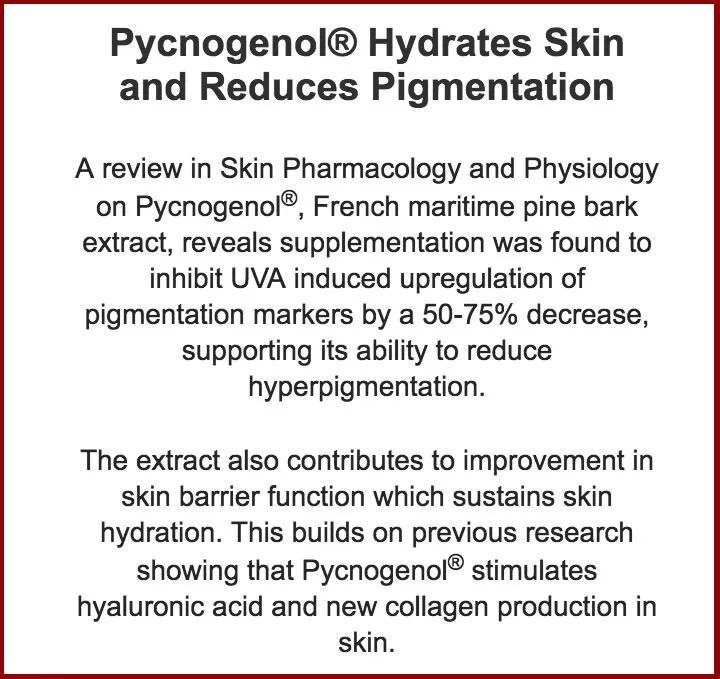
Who Should Avoid Pycnogenol
While Pycnogenol is generally considered safe, certain individuals should exercise caution or avoid its use. Those with known allergies to pine trees or other pine-related products should avoid using Pycnogenol. Pregnant or breastfeeding women should consult a healthcare professional before taking Pycnogenol supplements, as there isn’t enough research on its safety during these periods. Individuals with bleeding disorders or those taking blood-thinning medications should also consult their healthcare provider, as Pycnogenol may have blood-thinning effects. As with any new supplement or skincare product, always perform a patch test before applying it to a larger area to check for potential allergic reactions.
Interactions with Other Medications
Pycnogenol may interact with certain medications, so it’s crucial to be aware of potential interactions. It may have additive effects with blood-thinning medications, increasing the risk of bleeding. If you are taking any blood thinners or have a bleeding disorder, consult with your doctor before using Pycnogenol. Additionally, Pycnogenol can potentially interact with other supplements or medications, so it’s best to inform your doctor about all supplements you are taking. This ensures a safe and effective treatment strategy. Always consult with a healthcare professional for personalized medical advice.
Conclusion
Pycnogenol offers a promising natural approach to skin whitening, supported by its potent antioxidant and anti-inflammatory properties. From reducing hyperpigmentation to boosting collagen production, the benefits are considerable. It’s a versatile ingredient that can be incorporated in various forms, from topical applications to oral supplements. However, like any skincare ingredient, results can vary, and consistency is critical for maximizing the benefits. Always consult a dermatologist or healthcare provider before starting any new skin whitening regimen. Pycnogenol is a powerful, natural agent that can contribute to a brighter, more even, and healthier skin.
